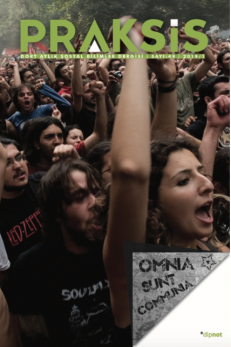Akademische Artikel
Why haven’t platforms taken over live music?
The limits of the “platform economy”

It is often assumed that the “platform economy” is in the ascendancy, and is taking over more and more economic sectors. Because of this, much research on the matter has focused on characterising and evaluating this change: what are the relative advantages and disadvantages of this kind of work compared to more “traditional” jobs? Should we be optimistic or pessimistic about it? Hence, most current research has looked at the experience of workers in industries which are already highly “platformised” (such as ride sharing, food delivery, or clickwork).
Entrevista a Darío Azzellini
“La guerra ha llegado a ser la forma de hacer economía y no la interrupción de la economía”
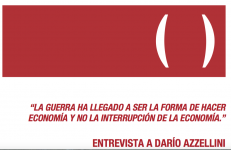
Quisiera comenzar la entrevista con algunas referencias relativas a su formación y a su trayectoria intelectual.
Book Review
Living on the Margins: Undocumented Migrants in a Global City by Alice Bloch and Sonia McKay

"The book offers interesting insight into the everyday life of undocumented migrants without portraying them as helpless victims. Ample quotations from the interviews underline their agency and the complex and contradictory conditions they experience in the ethnic enclaves they are forced to rely on. Bloch and McKay shed light on the circumstances, motivations, and conditions of ethnic enclave employers, who, in most of the literature on undocumented migration, are not a subject of research.
A Preview of the Future
Workers’ Control in the Context of a Global Systemic Crisis
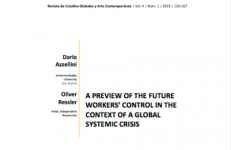
One of the ‘concrete utopias’, as Ernst Bloch called them, realistic possible concepts for a better world, that can already be found in the here and now, are ‘recuperated companies’. Focusing on the examples of the worker-controlled factories RiMaflow in the industrial periphery of Milan and Officine Zero in Rome this text allows a glimpse of how society could be organised differently.
El movimiento comunero en Venezuela
Construyendo utopías concretas
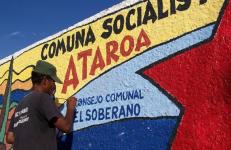
En el transcurso de la historia las utopías han jugado un papel importante en la construcción de alternativas sociales. En este artículo se analiza al mecanismo de autogobierno local venezolano de las comunas como prefiguración utópica o como “utopía concreta”. Se discuten diferentes conceptos marxistas y emancipadores de utopía conectándolos con el pensamiento latinoamericano, para demostrar cómo la prefiguración utópica es de considerar necesaria en los procesos de lucha revolucionaria.
La participación en Venezuela: conquista orgánica de la clase y punto de choque entre administración y poder popular

A la llegada a la Presidencia de Hugo Chávez en Venezuela, a comienzos de 1999, se puso en marcha un proceso de transformación social profundo en ese país. Una de las características centrales del proceso está en que la transformación social y la resignificación del estado son planteados como una construcción a dos bandas (Zibechi 2006, 206): Desde el estado y organizaciones de izquierda de tipo tradicional y desde movimientos populares y la sociedad organizada.
La Venezuela del pueblo. Control obrero, cooperativas y comunas.
Los análisis sobre Venezuela se suelen concentrar en las políticas de gobierno y –hasta el 2013 – en la igura de Chávez. Hasta la mayoría de los autores que apoyan el proceso bolivariano han prestado poca atención a la construcción popular desde abajo. En este artículo se analizan la dinámica del movimiento para el control obrero, las cooperativas y su conexión con las Comunas como forma avanzada de autogobierno local.
Ein Thesenpapier
ALBA – eine alternative regionale Allianz?
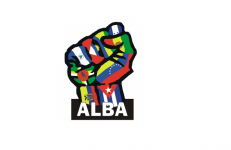
Die voranschreitende Globalisierung hat als Gegentendenz verschiedenartige regionale Integrationsbestrebungen hervorgebracht. Aus Sicht der europäischen Linken ist die Bolivarianische Allianz für die Völker unseres Amerikas (ALBA) interessant, weil sie regionale Zusammenarbeit und Integration völlig anders organisiert als alle anderen regionalen Allianzen.
An outline
ALBA – an alternative regional alliance?

Various regional integration initiatives have emerged as a counterpoint to the advance of globalisation. The Bolivarian Alliance for the Peoples of Our America (ALBA) is of interest from the perspective of the European left, because cooperation and integration take a very different shape in ALBA from other regional alliances. The three basic principles of ALBA are complementarity, solidarity and cooperation. That in itself is a marked difference from the European Union (EU) with its four fundamental freedoms (the free movement of people, goods, services and capital).
